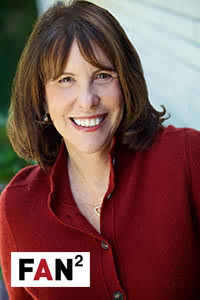
In her most recent book, “Teach Your Children Well: Why Values and Coping Skills Matter More Than Grades, Trophies, or ‘Fat Envelopes,’” Madeline Levine, Ph.D., a practicing psychologist with almost 30 years of experience, prolific New York Times bestselling author, and educator, argues that real success is an “inside job” not measured by report cards but rather by the adults our children become. Levine spoke with Make It Better about the growing helplessness of American teens and offers her suggestions for helping children regain control of their lives and their futures.
Levine will be speaking at a Family Action Network (FAN) event at Glencoe’s Central School on Thursday, March 3 at 7 p.m.
Where’s the Teen Rebel Spirit?
Madeline Levine: In spite of a parade of professionals coming into our communities to talk about the dangers of stress and the increasing volume of homework for our kids, it’s still going on. Has there been progress? Yes. Have our problems been solved? No. So, what’s really going on here?
We often blame homework for placing too much stress on our kids, but I think that the bigger issue is that kids have learned to become kind of helpless — they have developed “learned helplessness” as a result of being over-managed. Teens don’t have enough control over their world. Sure, they still do stupid things but the pushback from adolescents is diminishing. Kids have become more passive and compliant. Those ways of being in the world are highly tied to depression and anxiety disorders (check out Seligman’s research).
Homework is a stressor, yes, but more than that kids don’t feel like they have options. Now you hear kids say things like, “I have no choice.” Whereas 15 years ago, you’d most often hear teens proclaim, “It’s my life, not yours.” Teens used to yearn to be in control of their lives and now they seem to accept whatever they’re told it will be.
When we blame academia, that suggests adults should change the stressors for their kids; it’s saying the system has to change. Yes, the system should change, but a child of 16, 17, 18 years old has the choice of saying, “No, I’m not going to do this.” I don’t think it’s that kids are entitled or stressed but that they are clueless about how to change things. There’s an optimism in this. There are clear ways to unlearn helplessness and develop a growth mindset. We’ve been busy with the symptoms but that doesn’t address the bigger issues of climbing depression and suicide rates.
Parents Are Still Using Old Models.
ML: Parents are terrified. They have no clue what their kids are going to end up doing so they’re pushing an old model that used to lead to success: attending a good school. A better route is to give kids a sense of control and facilitate qualities we know are helpful when times are uncertain. It’s proven that uncertain conditions lead to less sound decisions; our kids will be expected to solve problems that we haven’t faced in jobs not yet invented. Yet, we’re still acting like it’s 1972.
Our kids are growing up in a rapidly changing environment. Their world is VUCA, which is a military term that stands for: Volatile, Uncertain, Complex, Ambiguous. We have no idea what the future economy and resulting jobs will look like. That means that traits and skills like curiosity, trial-and-error learning, flexibility, and engaging with diverse groups will be key.
Stop Casting Academics as the Star.
ML: Research confirms that the pedigree of a school isn’t linked to success or happiness (the exception being advanced business degrees where success was measured monetarily — but is the sacrifice necessary for that extra $12,000 worth it?). A predetermined trajectory doesn’t work anymore — the days of working at IBM for 35 years until retirement are gone. Rather, it’s a sense of purpose that’s critical to leading a meaningful life. Kids need have the flexibility to engage in the things they’re passionate about.
There’s no room for that as long as the sole focus is academics. Take a look at how much time kids have after fitting in the basics like sleep, food, grooming, school hours. If they’re adding four hours of daily homework, there’s no time for exploration. Kids, especially teens, need to have a sense that they have some control over their lives.
Offer Children Control by Giving Them Choices.
ML: But how do you begin to give your kids control while still providing structure? It’s not about being the parent who brings the alcohol to the party thus allowing your teen to break rules as controlled by you. Often we give kids choices in the wrong ways. And you’re not a short order cook — kids don’t get three choices of what to eat for dinner.
A better way of beginning to offer choices is to ask a 3-year-old if he wants to wear his red or blue pants. Let your 8- or 9-year-old child explore the neighborhood on her bike. Adjust choices by age. For example, “You get to choose an after-school sport — lacrosse or soccer?” Or, “Would you like to go to the mall for 30 minutes or 60 minutes?” Kids develop a sense of control in the world little by little through a progression of choices.
Want More?
- Have an hour? Attend Levine’s local FAN talk at Glencoe Central School at 7 p.m. on Thursday, March 3. The event is free and open to the public. This event is presented by FAN in partnership with the Alison Tobey Smart Memorial Fund at Kenilworth Union Church, Family Service of Glencoe, Glencoe District 35, Glencoe PTO and MCC Academy.
- Have a few hours? Read one of Levine’s books: “Teach Your Children Well;” “The Price of Privilege;” and others.
- Visit Levine’s website to learn more.
FAN Annual Sponsors: Martin & Mary L. Boyer Foundation, Compass Health Center, Erikson Institute, Evanston Township High School, Make It Better, Mammal Foundation, New Trier Township High School, Pathways, Tina & Byron Trott
FAN Strategic Partners: Acclaim Media, Center for Talent Development at Northwestern University, Curt’s Cafe, Evanston/Skokie School District 65, Hackstudio, Loyola University Chicago School of Law, Master of Science in Education Program at Northwestern University, North Shore Community Bank & Trust, Northern Suburban Special Education District, New Trier Parent Association, Northwestern University, Redefined Fitness, The Book Stall, The Family Institute at Northwestern University, Y.O.U., YWCA Evanston/North Shore
FAN In-Kind Sponsors: Kirkland & Ellis, Turing Group
More from Make It Better:

